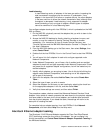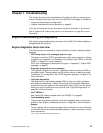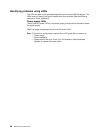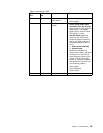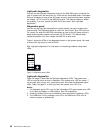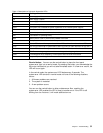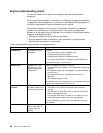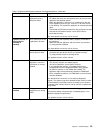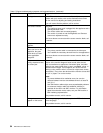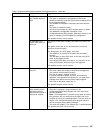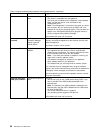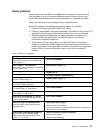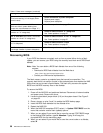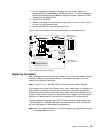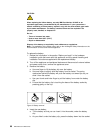
Table 5. Engine troubleshooting symptoms and suggested actions (continued)
Device/Problem Symptom Suggested action
Intermittent problems A problem occurs only
occasionally and is
difficult to detect.
Verify that:
1. All cables and cords are connected securely to the rear of the
appliance and attached options.
2. When the appliance is turned on, air is flowing from the rear
of the appliance at the fan grill. If there is no air flow, the fan
is not working. This causes the appliance to overheat and shut
down.
3. Ensure that the SCSI bus and devices are configured correctly
and that the last external device in each SCSI chain is
terminated correctly.
If the items above are correct, call for service.
Keyboard, mouse, or
pointing-device
problems (if
attached).
All or some keys on the
keyboard do not work.
1. Make sure that the keyboard cable is properly connected to
the appliance.
2. Make sure that the appliance and the monitor are turned on.
3. Try using another keyboard.
If the items above are correct, call for service.
The mouse or pointing
device does not work.
1. Verify that the mouse or pointing-device cable is securely
connected and the device drivers are installed correctly.
2. Try using another mouse or pointing device.
If the problem remains, call for service.
Memory problems The amount of memory
displayed is less than
the amount of memory
installed.
Verify that:
1. The memory modules are seated properly.
2. You have installed the correct type of memory.
3. If you changed the memory, you updated the memory
configuration with the Configuration/Setup Utility program.
4. All banks of memory on the DIMMs are enabled. The
appliance might have automatically disabled a DIMM bank
when it detected a problem or a DIMM bank could have been
manually disabled.
If the above items are correct, run the memory diagnostic
program. The system might have detected a bad memory module
and automatically reallocated memory to enable you to continue
to operate. If the memory tests fail, call for service or replace the
failing DIMM.
Microprocessor
problems
The appliance emits a
continuous tone during
POST.
The startup (boot) microprocessor is not working properly.
Verify that the startup microprocessor is seated properly. If it is,
replace the startup microprocessor.
If the problem remains, call for service.
Chapter 7. Troubleshooting 53



